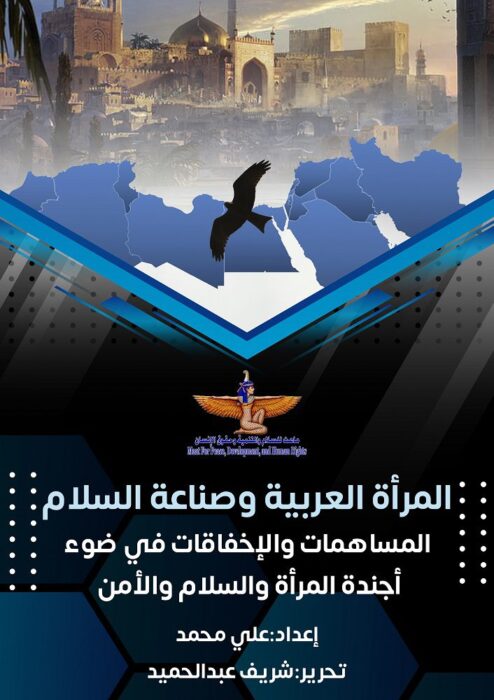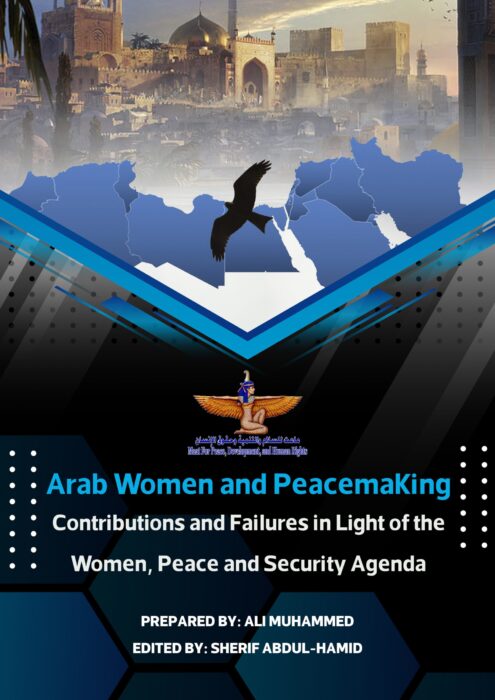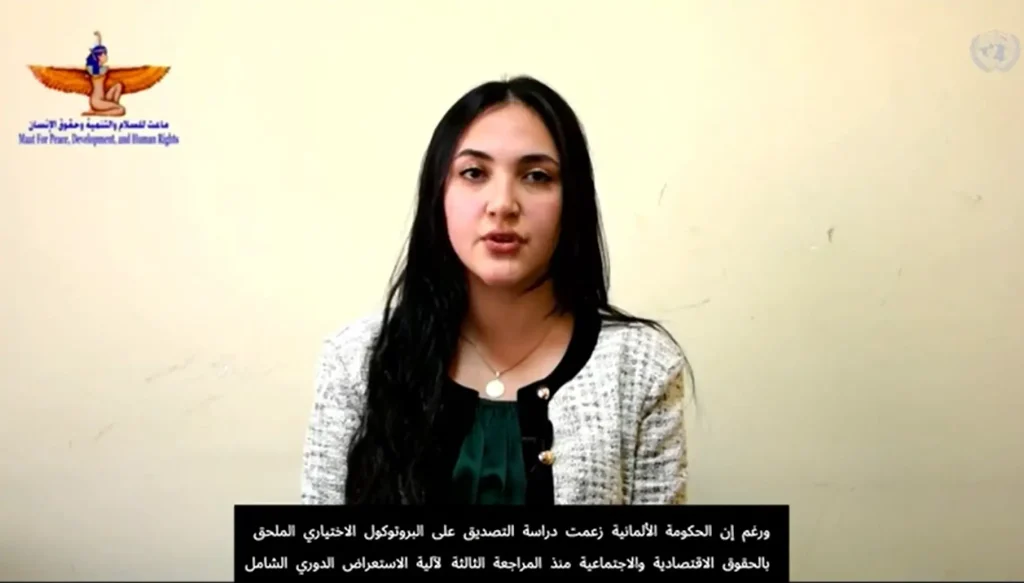Arab Women & Peacemaking... A New Study by Maat
Okeil: The failure of negotiations increases by 50% if women are not involved in peace processes
Abdul-Hamid: Arab women face a set of challenges and difficulties to integrate them into peacemaking processes
Maat for Peace, Development and Human Rights issued a new study entitled "Arab Women and Peacemaking: Contributions and Failures in Light of the Women, Peace and Security Agenda", which focused on the legal references for women participation in peacebuilding, including the Convention on the Elimination of All Forms of Discrimination against Women, along with Resolution 1325 on women, peace and security, as well as the regional strategy “Protection of Arab Women: Peace and Security,” launched by the Arab League in 2012. The study also included the involvement of Arab women in peacebuilding by focusing on contributions and failures, in addition to highlighting the four pillars of Security Council Resolution No. 1325 and the extent of its application in the Arab region. The study also clarified the role played by governments and civil society in involving women in peacebuilding.
The study showed that international and regional treaties and strategies, along with Security Council resolutions are filled with references that place women as an essential partner and an indispensable element in peacebuilding processes, especially in countries experiencing situations of armed conflict, and that there are several ways and mechanisms for integrating women into peaceful negotiations and mediation. These means range from sitting at the negotiating table to doing public mobilization at the grassroots level.
Okeil added that the failure rate of negotiations increases by 50 percent if civil bodies are not involved, particularly those related to women and that women access to peace negotiations increases the chances of the peace agreement by 20 percent and the chances of its continuation by 35 percent.
In the same context, Sherif Abdul-Hamid, director of the Research and Studies Unit at Maat, said that Arab women face a set of challenges and difficulties that prevent their integration into peace-making processes, such as the stereotypical beliefs that pro-women international agreements are not in line with the religion, traditions, and customs. The United Nations Convention on the Elimination of All Forms of Discrimination against Women,” also known as “CEDAW” has raised much controversy among religious leaders, jurists, and radical political parties. Among these challenges is the continuation of armed conflicts in a number of Arab countries, which undermines the role of women in peacebuilding, and creates a state of intimidation that often prevails among women in these areas, who may face killing and imprisonment, in total absence of accountability, which makes these practices a recurring pattern in these areas.
In the same context; Sherif Abdel Hamid, director of the Research and Studies Unit at the Maat Foundation, said that Arab women face a set of challenges and difficulties to integrate them into peace-making processes, for example, the stereotype that international agreements supporting women contradict religions, traditions and customs. The United Nations Convention on the Elimination of All Forms of Discrimination against Women, known by the abbreviation “CEDAW”, was opposed by religious leaders, jurists and radical political parties, and one of the challenges is also the continuation of armed conflicts in a number of Arab countries that undermine the role of women in building peace, where the situation often prevails From intimidation and intimidation of women in these areas, up to killing and imprisonment, in the absence of any of the perpetrators to be punished or held accountable, which makes these practices a recurring pattern in these areas.
Abdul-Hamid added that one of the most important challenges hindering the implementation of the women's peace and security agenda is the lack of funding for women's organizations or programs aimed at empowering women or gender equality. Things got worse with the change of donors priorities, particularly after the Coronavirus pandemic.
Finally, the study called for the need to adopt national action plans to implement Resolution 1325 on Women, Peace and Security; and develop national strategies for combating violent extremism and building peace, while allowing women’s participation in the follow-up and implementation of operational action plans for these strategies as well as protecting all women and girls at all times, while revising the legislative and legal frameworks in each individual country to ensure the abolition of discriminatory laws against women; and work to achieve the sustainable development goals, particularly SDG 5 on gender equality, SDG 10 on reducing inequalities within countries, and SDG 16 on peaceful and inclusive societies, while giving women a priority in terms of consultation with them and their participation in implementing and monitoring the goals related to the sustainable development agenda.

 |
 |











